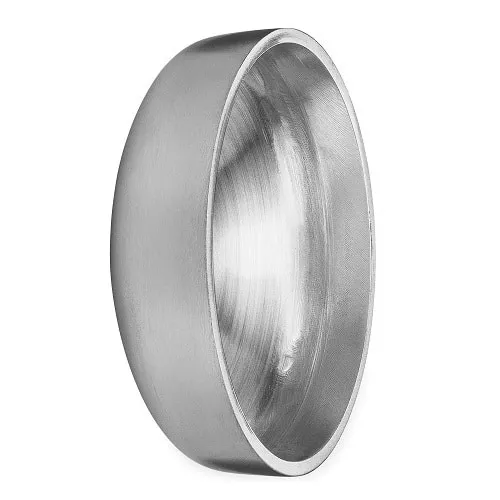-
Cangzhou Yulong Steel Co., Ltd.
-
Phone:
+86 13303177267 -
Email:
admin@ylsteelfittings.com
- English
- Arabic
- Italian
- Spanish
- Portuguese
- German
- kazakh
- Persian
- Greek
- French
- Russian
- Polish
- Thai
- Indonesian
- Vietnamese
- Zulu
- Korean
- Uzbek
- Hindi
- Serbian
- Malay
- Ukrainian
- Gujarati
- Haitian Creole
- hausa
- hawaiian
- Hebrew
- Miao
- Hungarian
- Icelandic
- igbo
- irish
- Japanese
- Javanese
- Kannada
- Khmer
- Rwandese
- Afrikaans
- Albanian
- Amharic
- Armenian
- Azerbaijani
- Basque
- Belarusian
- Bengali
- Bosnian
- Bulgarian
- Catalan
- Cebuano
- China
- China (Taiwan)
- Corsican
- Croatian
- Czech
- Danish
- Esperanto
- Estonian
- Finnish
- Frisian
- Galician
- Georgian
- Kurdish
- Kyrgyz
- Lao
- Latin
- Latvian
- Lithuanian
- Luxembourgish
- Macedonian
- Malgashi
- Malayalam
- Maltese
- Maori
- Marathi
- Mongolian
- Myanmar
- Nepali
- Norwegian
- Norwegian
- Occitan
- Pashto
- Dutch
- Punjabi
- Romanian
- Samoan
- Scottish Gaelic
- Sesotho
- Shona
- Sindhi
- Sinhala
- Slovak
- Slovenian
- Somali
- Sundanese
- Swahili
- Swedish
- Tagalog
- Tajik
- Tamil
- Tatar
- Telugu
- Turkish
- Turkmen
- Urdu
- Uighur
- Welsh
- Bantu
- Yiddish
- Yoruba

Aug . 14, 2024 22:48 Back to list
Innovative Techniques for Streamlining Production Processes in Modern Pipe Manufacturing Industries
The Pipe Factory A Hub of Innovation and Industry
In the heart of industrial landscapes across the globe, pipe factories stand as critical pillars of infrastructure development. These facilities are not just manufacturing units; they are intricate ecosystems where technology, engineering, and craftsmanship converge to produce essential products that sustain modern living. From plumbing systems to large-scale construction projects, pipes play a vital role, making pipe factories indispensable in today's economy.
The Manufacturing Process
The production of pipes involves several intricate steps, starting from the selection of raw materials to the final quality control checks. Typically, high-quality materials such as steel, plastic, or copper are chosen based on the intended use of the pipes. For instance, PVC pipes are favored for their lightweight yet sturdy characteristics, ideal for residential plumbing, while steel pipes are often preferred in industrial applications due to their durability and strength.
Once raw materials are procured, the manufacturing process begins. This often includes extrusion, where materials are heated and forced through a mold to form pipe shapes. The pipe is then cooled and cut to the desired length. Factories may also employ techniques like welding or casting, depending on the type of pipe being manufactured. Advanced technologies such as Computer Numerical Control (CNC) machines ensure precision and efficiency in production, minimizing waste and maximizing throughput.
Quality Assurance
Quality control is paramount in pipe manufacturing. Given that pipes are often critical components in construction and infrastructure, any defects can lead to catastrophic failures. Factories implement rigorous testing protocols, including pressure tests and material integrity assessments. Each batch of pipes must meet specified standards set by industry organizations, ensuring safety and functionality. This focus on quality not only enhances the reputation of the manufacturer but also protects the consumers and end-users of the products.
Environmental Considerations
pipe factory

As the world increasingly turns its attention to sustainability, pipe factories are adapting by incorporating green practices into their operations. Many factories now utilize eco-friendly materials and processes to reduce their environmental footprint. Recycling programs are implemented to repurpose scrap material, and energy-efficient machinery is employed to minimize energy consumption during production.
Moreover, manufacturers are exploring alternative materials, such as biodegradable plastics and composite materials, which hold the promise of being both durable and environmentally friendly. These advances reflect a broader trend within the industry to embrace sustainability principles, aligning production practices with the expectations of environmentally conscious consumers.
The Future of Pipe Manufacturing
Looking ahead, the future of pipe manufacturing harbors exciting developments. Innovations in technology, such as the Internet of Things (IoT) and automation, offer the potential to optimize production processes further. Smart factories equipped with sensors and data analytics can monitor equipment health, predict failures, and streamline workflows, leading to improved efficiency and reduced downtime.
Additionally, the demand for pipes in emerging sectors like renewable energy, such as wind and solar installations, is expected to increase. This shift will require pipe manufacturers to adapt and innovate, creating specialized products that meet the evolving needs of the market.
Conclusion
In conclusion, the pipe factory is not just a site of production; it is a critical component of modern infrastructure, blending traditional craftsmanship with cutting-edge technology and sustainability practices. As we move towards a more interconnected and environmentally conscious world, these factories will play an essential role in shaping the infrastructure necessary for future generations. Whether it’s for residential, commercial, or industrial applications, the pipes produced in these factories are vital cogs in the machinery of contemporary society. As such, the pipe factory remains a symbol of innovation and resilience in the face of ever-changing industrial demands.
Latest news
-
ANSI 150P SS304 SO FLANGE
NewsFeb.14,2025
-
ASTM A333GR6 STEEL PIPE
NewsJan.20,2025
-
ANSI B16.5 WELDING NECK FLANGE
NewsJan.15,2026
-
ANSI B16.5 SLIP-ON FLANGE
NewsApr.19,2024
-
SABS 1123 FLANGE
NewsJan.15,2025
-
DIN86044 PLATE FLANGE
NewsApr.19,2024
-
DIN2527 BLIND FLANGE
NewsApr.12,2024
-
JIS B2311 Butt-Welding Fittings LR/SR 45°/90° /180°Seamless/Weld
NewsApr.23,2024











